Nishi Tiwari
The Mumbai Film Festival returned for its 15th edition with a brand new ticketing system (patrons were required to book seats for the shows they wanted to watch) at Liberty theatre and Metro Big Cinemas theatre (South Mumbai) and Cinemax theatre (Versova, a western Mumbai suburb), with exciting new films, workshops, panel discussions and the much talked-about participation of acclaimed French filmmakers Leos Carax and Costa Gavras.
While Carax's Holy Motors was a huge draw at the festival's 2012 edition and was screened again this year, Gavras, 80, director of the acclaimed political thriller Z -- on which Dibakar Banerjee's Shanghai was based -- was felicitated with the Lifetime Achievement Award on the festival's inaugural day.
Here's a look at the top 10 films at the festival.
The Great Beauty (La Grande Bellezza)
Italian filmmaker Paulo Sorrentino's new film has been hailed by critics as a great 'update on Federico Fellini's La Dolce Vita,' a 1960 social satire that won the Palme d'Or at the 1960 Cannes Film Festival and had figured in award-winning film critic Roger Ebert's list of Top 10 greatest films of all time.
A wistful yet profoundly funny social commentary, The Great Beauty offers some brilliant insights into the advanced cultural decline the Italian high society finds itself in today and yet chooses to mask the reality of its existence with booze and drug-fueled parties, shallow conversations and botox.
The affable and wealthy writer Jep Gamberdella (Toni Servillo) -- who has whiled his life away leading such a life instead of exploring his writing talent, embarks on a quest for life truths and spirituality a day after his deliriously grand and visually magnificent 65th birthday which is attended by his high society friends and hangers-on.
Peppered with incisive humour -- 'The best people in Rome today are the tourists,' Jep remarks during a quiet get-together with his friends -- and heartbreaking shots of Rome's beautiful architectural ruins, The Great Beauty is a powerful film that lingers till long after the end credits have rolled.
Please click NEXT for more...
Blue Is The Warmest Colour (La Vie d'Adele -- Chapitres 1 & 2)
Image: Adele Exarchopoulos and Lea Seydoux in Blue Is The Warmest ColourNishi Tiwari
To say that French filmmaker Abdellatif Kechiche's film about the first rushes of love and its aftermath is beautifully intense would be a serious understatement.
Winner of the Palme d'Or (awarded to the director as well as his two protagonists, a first in Cannes history) -- at this year's Cannes Film Festival, Blue Is The Warmest Colour had film festival patrons rushing to book seats as both scheduled shows promptly filled out.
Based on the award-winning French graphic novel Blue Angel, this romantic drama traces 15-year-old Adele's passionate romance with the blue-haired and slightly older arts student Emma.
School-going Adele's quiet teenage life changes irrevocably when she first lays eyes on Emma on a busy street one afternoon.
The feverish, all-consuming love story that unfolds is strikingly unusual on many counts.
Kechiche's extraordinary direction painstakingly fleshes out the romance and its most tumultuous point -- Emma's gaze lingering on Adele's face as they dreamily fall silent after talking about existentialism, Adele's slight discomfort in navigating Emma's world and many other rousing moments in the film strikes as powerful without being melodramatic.
Adele Exarchopoulos (in her acting debut as Adele) lends immense appeal to her character with her thoughtful performance and is matched by the more experienced Lea Seydoux (as Emma).
The Past (Le Passe)
Image: A scene from The PastSonil Dedhia
Iranian filmmaker Asghar Farhadi, who won the Oscar for the Best Foreign Film for A Separation last year, returns with The Past.
An Iranian man (Ali Mosaffa) returns to Paris after four years to divorce his French wife (Bérénice Bejo of The Artist's fame). His ex-wife has already begun a relationship with another man (Tahar Rahim).
The film is a story about people, who cannot forget their past because of which they aren't able to move forward.
Every character in the film has their own journey, shown beautifully in the film. Wonderful performances enhances the film even more.
There are some brilliant subplots in the film as well.
Katiyabaaz (Powerless)
Image: A scene from KatiyabaazSonil Dedhia
Directed by Fahad Mustafa and Deepti Kakkar, Katiyabaaz is a satirical yet inspiring take on the poor electricity scenario in one of the many cities in India.
It is set in the city of Kanpur, where power cuts are very frequent and last as long as 15 hours a day.
Loha Singh is a Katiyabaaz (a person who steals electricity) and provides it to poor people. He is a hero-like figure.
Then, we have Ritu Maheshwari, director of the Kapur Electricity Supply Company (KESCO), who is determined to stop power theft in Kanpur.
As Loha Singh goes rampant with illegal electricity connections, the KESCO people raid houses, check meters, collect fines and remove illegal connections. The task is hampered by the people, as they blame KESCO for not providing them electricity.
The film not only focuses on the electricity issue in Kanpur, but also on the battle between the government and the underprivileged people.
The film also won the Best Film award in the India Gold section at the fest's closing ceremony on October 24.
The Rocket
Image: A scene from The RocketNishi Tiwari
Australia's official entry for the Oscar foreign category, Kim Mordaunt's The Rocket stands out with some deftly-written scenes highlighting the comic situations that can stem from extreme tragedy.
In one sequence, while traversing through the war-ravaged parts of Laos for a new home, Ahlo -- who is believed to bring bad luck to his family and community -- chances upon a clearing strewn with mysterious-looking round objects.
He promptly launches into a game with her new friend, the feisty nine-year-old Kia, wherein she throws them at him and he strikes them with a wooden plank. They are having a ball doing so when Kia's drunk uncle lungs hysterically at them and throws the object as far as he can.
Turns out, the clearing actually was a landmine.
The Rocket triumphs in similar other moments and a very Lagaan-like ending, only it practices admirable restrain and goes easy on theatrics.
Mapa
Image: A scene from MapaNishi Tiwari
Spanish writer-filmmaker Leon Siminiani's autobiographical documentary follows an interesting format.
Deeply personal and reflective in tone, the film documents Siminiani's trip to India, which he had initially embarked on to make a feature film.
His often hilarious and curious encounters with all things Indian are juxtaposed with the inner turmoil brought on by the personal setback.
While he is on a lookout for his own answers, he constantly finds himself questioning how he should 'respond to the enigma that is India -- emotionally or rationally?'
The other protagonist in the film -- the 'other voice' in Siminiani's head pops up from time to time to offer interesting perspectives but mostly to serve as a voice of reason.
A wonderful reminder that the voices in our heads say the most interesting things.
Young And Beautiful (Jeune And Jolie)
Image: A scene from Young And BeautifulNishi Tiwari
Young And Beautiful, which opened the Rendezvous with French Cinema segment, follows the sexually curious Isabelle who comes from a well off family that holidays in scenic locations in the summers.
Isabelle's first sexual encounter happens on one of said vacations following which she turns to prostitution, sleeping with all kinds of men -- the silver-haired gent who pops viagra before the act, the misogynist who doesn't pay up after the services are rendered, the works.
Isabelle's calm composure as she gets on with her secret life belies her age and highlights that scary side of teenagers -- no one seems to know why they do what they do and how to deal with it.
Her liberal and loving mother and stepfather are secretly terrified of her way of acting up and resort to ways to discipline her that seem comically naive in hindsight.
Bad Hair (Melo Palo)
Image: A scene from Bad HairNishi Tiwari
This film's theme was the most intriguing of the lot.
Junior, who lives with his single mother and toddler sister, is obsessed with getting his stubbornly curly hair straightened for school pictures.
Junior's young mother, who finds it difficult to hold on to a job, sees his preoccupation as a sign of homosexuality and is troubled by the thought.
She relentlessly dissuades him from his preoccupation and discourages singing, another sign of her son being gay. This would have, in any other context, come across as a very disturbing stereotype but here, it is underlined with comedy that arises from ignorance.
In similar vein, Junior's friend and constant companion, a young girl who is struggling herself to meet the societal standards of beauty, says during a conversation, 'You have to be beautiful to be raped.'
To which, Junior retorts, 'Nobody will rape you then.'
The film's unsettling themes and a powerful climax make it an extremely engaging watch.
Inside Llewyn Davis
Image: A scene from Inside Llewyn DavisNishi Tiwari
Another favourite at the film festival was the Coen Brothers' new film Inside Llewyn Davis, starring Issac Oscar and Carey Mulligan.
The film traces the journey of struggling folk singer Llewyn Davis (Oscar Isaac) as he navigates -- with much difficulty -- the bleak world of folk musicians of the 1960s while trying to stay true to his music.
Dimly-lit cafes, overcast skies and passive characters (save for Mulligan's fiery Jean Berkey, who is perennially mad at Davis) give the film a depressive tone but are tempered with witty banter.
Hailed as 'Coen brothers' most affecting film since A Serious Man.'
Ilo Ilo
Image: A scene from Ilo IloNishi Tiwari
Anthony Chen's debut film Ilo Ilo ran to packed halls in the film festival and went on to win the Best Director (International Competition).
It also won the Camera d'Or at Cannes this year and is Singapore's official entry to the Foreign Language category at the Oscars.
When a Fillipino woman enters the Lim family of three, things gradually take a turn for worse.
While Mr and Mrs Lim struggle with their careers, thanks to the economic downturn, their troublesome son Jaile forges a special bond with the family's Filipino domestic help Terry.
There's underlying tension between her and her employer Mrs Lim -- as a mother, she often feels threatened by her son Jiale's growing proximity with the new maid.
In a standout scene from the film, Mrs Lim, who is expecting her second child, is seen typing out a letter of termination for another employee of her firm.
The scene beautifully outlines the uncertain times the family is looking ahead at.


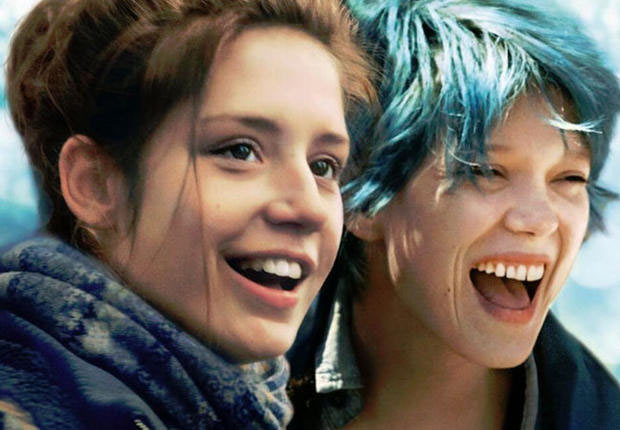
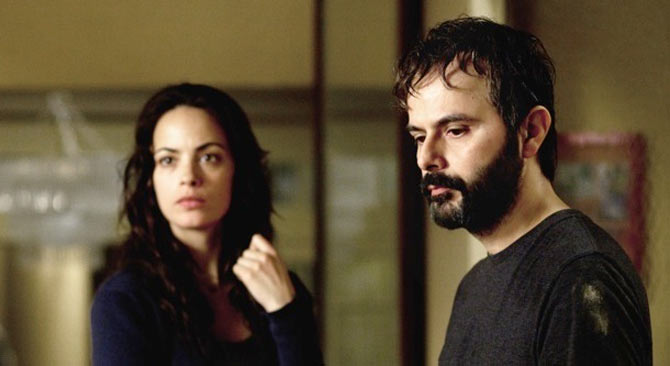
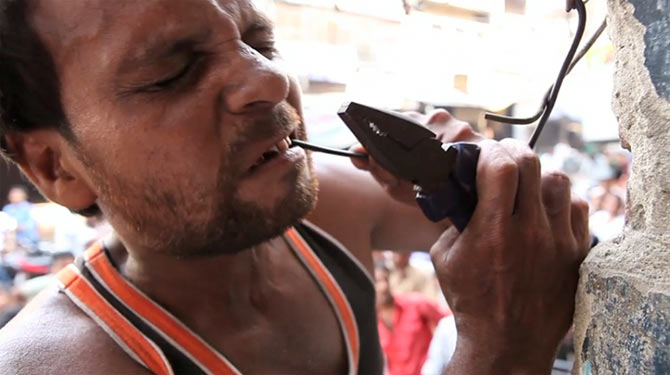
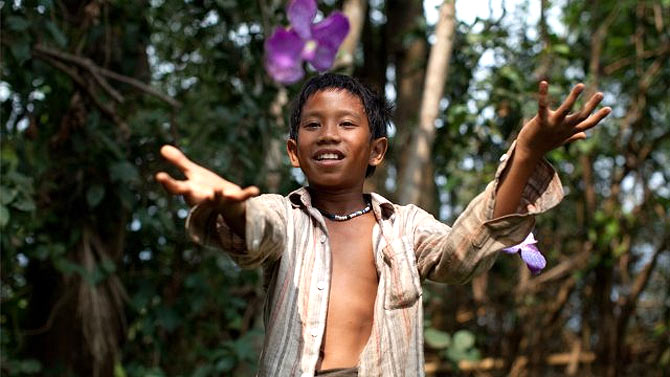
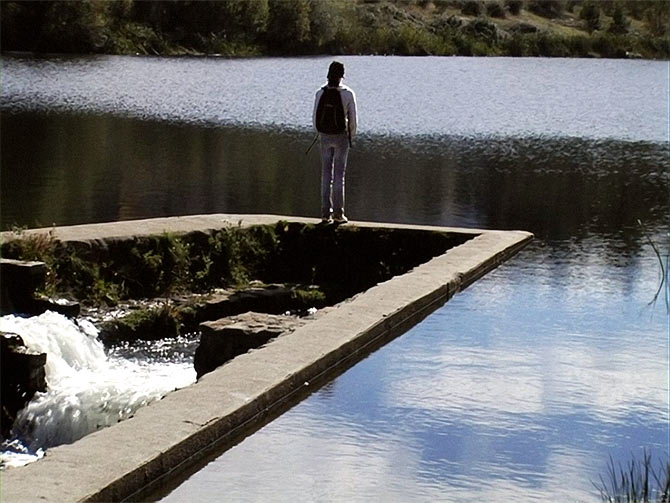
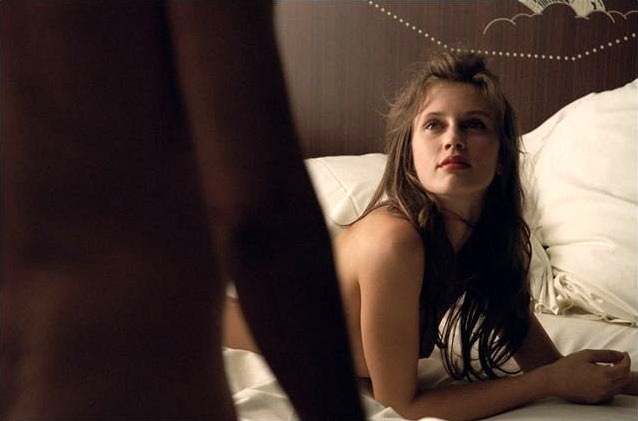
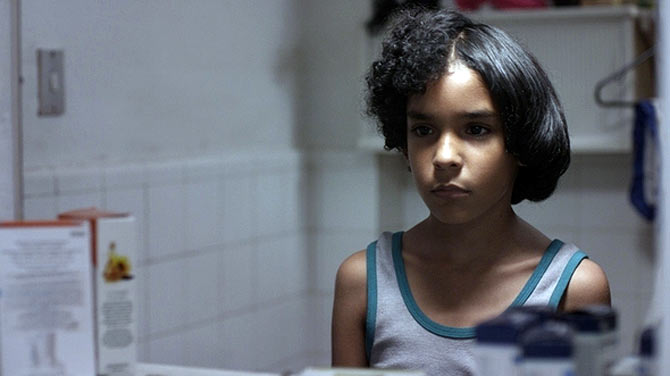
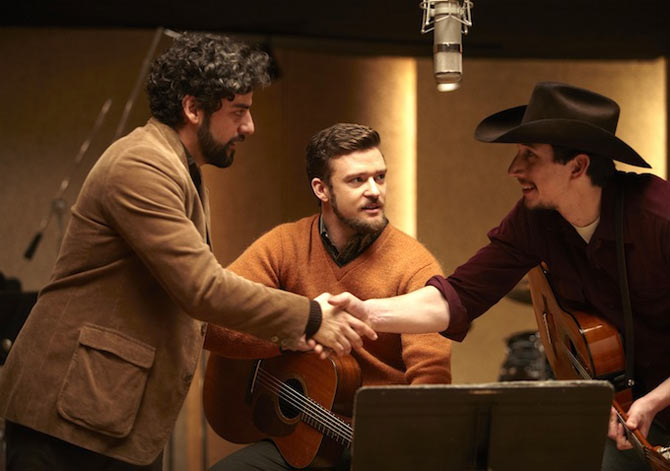
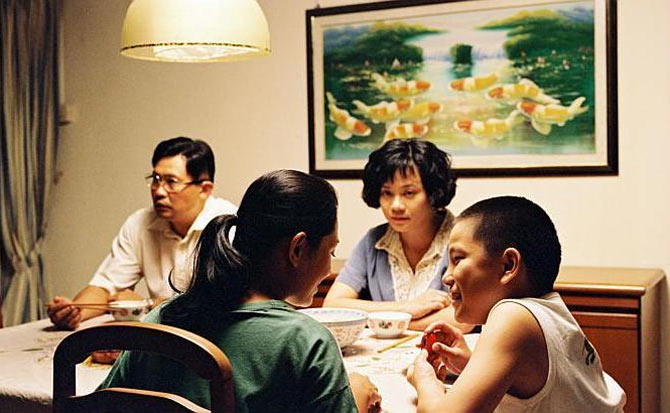
Comment
article